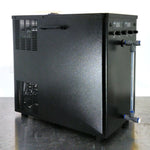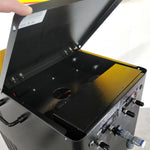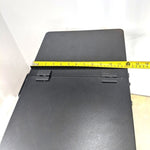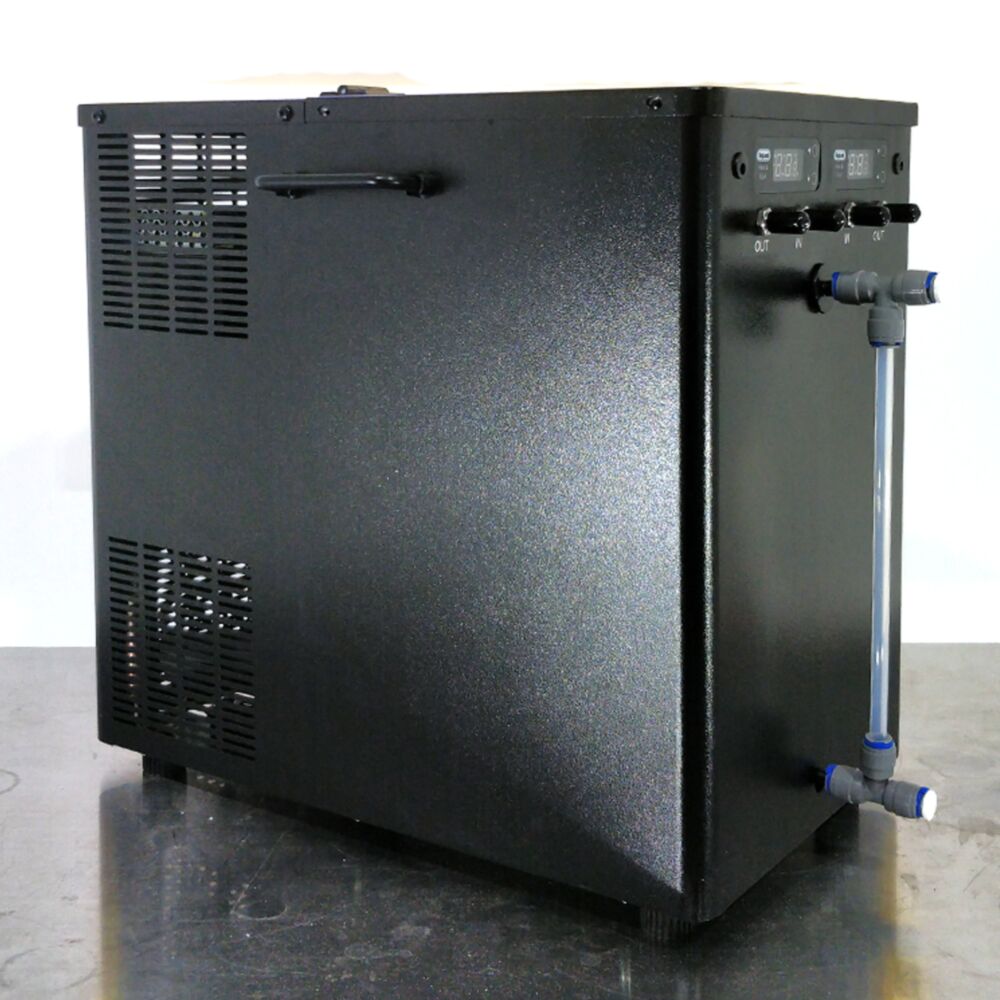
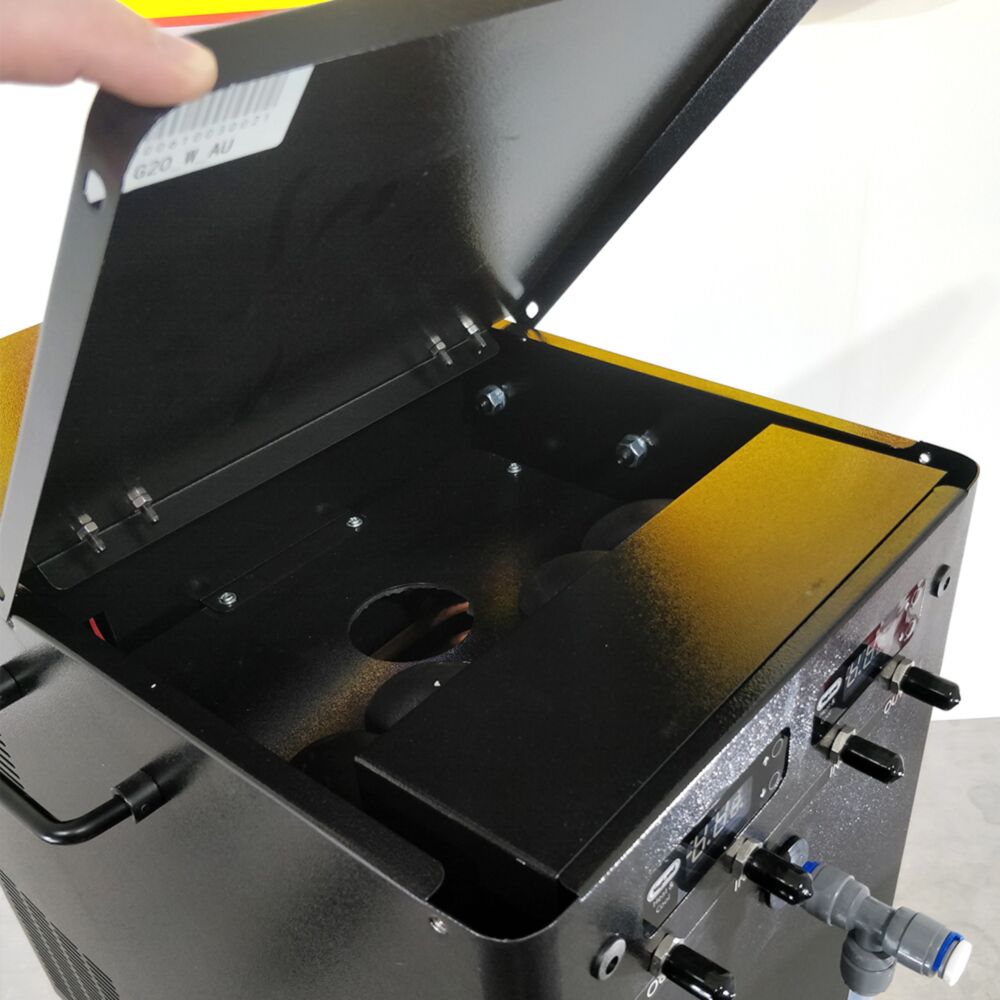
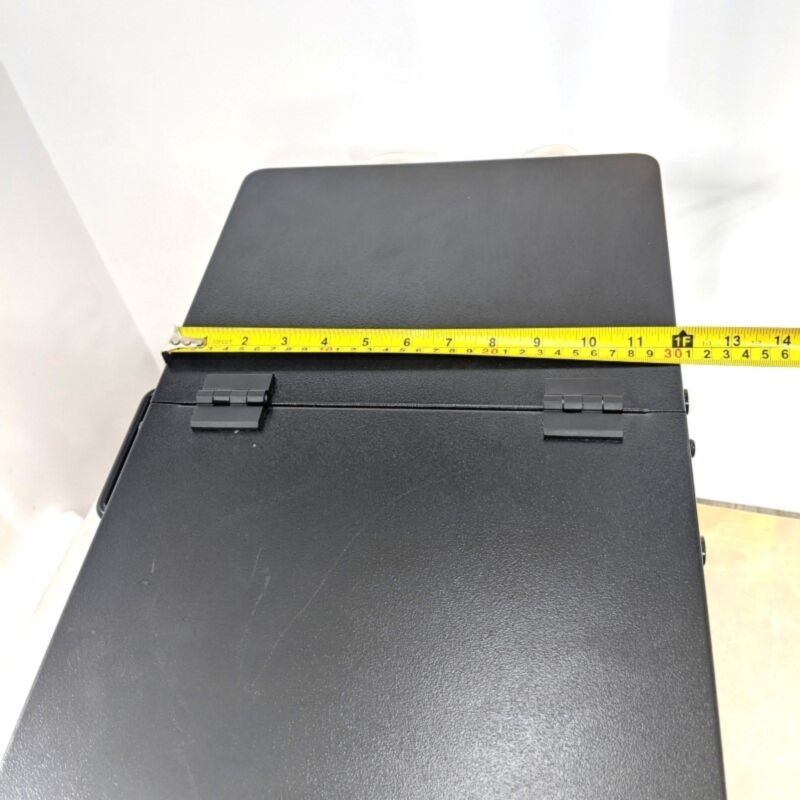
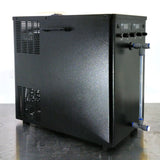
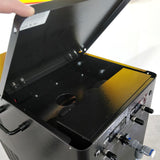
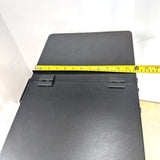
IceMaster G20.1 - Glycol Chiller - Digital Fermentation Control - (with 2 integrated pumps for dual temp)
Description
From Kegland:
The Icemaster G20.1 is an efficient glycol chiller that has fantastic cooling performance. It's compact, quiet and ideal for a domestic environment. It is powerful enough to chill well-insulated fermenters up to 300L in size or multiple smaller fermenters. It has about 600-watt cooling power making it suitable for crash chilling even in hot ambient temperatures in your garage or brewery.
NOTE: The castor wheels and dolly in the photos are not included.
To get the most out of this unit we recommend the use of Propylene Glycol (ideally about 30% concentration).
IceMaster G20 Instruction Manual
Specifications
- Refrigerant: r600a isobutane
- Cooling Power: 600watts (0.8HP)
- Power Consumption: 155w
- Tank: 16.42L
- Max Head (per pump): 5meter
- Max Flow (per pump): 600L/Hr
- Output Barb Size: To suit 10mm (or slightly smaller) ID tube, Barbs are 10mm.
Integrated Pumps
Unlike other units, this unit comes with 2 integrated pumps and temp controllers. This will allow you to independently cool two fermenters at the same time at different temperatures. Set the temp on the main reservoir to -4C then (after you have added 30% glycol) then on the other side of the G20 set the other two temperatures to your ideal fermentation temperatures. No additional wiring necessary. Pumps included and already wired up ready to use.
Chill Wort
Cooling wort from 100C to 50C is quite easy with tap water most of the time. With that said cooling from 50C to 18C can take ages. This is because your tap water might be as hot as 35C meaning it would be impossible to mater how much water you use to get down to 18C (yeast pitching temperatures). The Icemaster G20 solves this problem and is the easy way to take advantage of sub-zero glycol to cool your fermenter to acceptable temperatures for the fermentation process (PLEASE NOTE: only use this unit to chill wort after you have already chilled down to <50c with water, otherwise there is a risk of overloading the compressor). This unit can be used in conjunction with an coil immersion chiller, Fermzilla temp twister or plate chiller
Cool Your Bright Tank Fermenter
Larger and well-insulated fermenters, in particular, will often generate enough heat to heat the fermenter which is why large commercial breweries often have no heating. They rely on the yeast activity to heat the fermentation tank. The G20 can be used to cool a range of different fermentation vessels when used with products such as the Temp Twister.
Heating
The KegLand G20 IceMaster glycol chiller can also be set up to heat the reservoir. There is a push in port on the two temperature controllers to control the heating of the device you decide to use.
Sorry we don't stock any submersible heaters for this application. Please note: Installation of such heating device must be installed by a trained electrician.
Compressor NOT Thermoelectric
Although thermoelectric glycol units are significantly cheaper to make to really get the power needed to chill wort quickly and efficiently you need compressor cooling. Compressors increase the cost of the manufacturing process however due to the fact they are between 3-6 times more electrically efficient for this application the initial manufacturing cost will easily be recouped in electrical savings. In addition to this compressors are significantly more powerful and able to pump more heat even in hot ambient temperatures where thermoelectric units will struggle. So if you want to retain the ability to crash chill fermenter you can't go past the cooling power of compressor cooling.
Installation Requirements
This unit requires a 100mm Clearance around all air vents.
Regular maintenance of dust around radiator is required to ensure optimum efficiency.
Ideally used with Glycol/Water ratio of 20% to achieve -8°C freezing point
Shipping information
- Order before midday (mon - fri) for same day shipping
- Free Shipping for orders over £80 (DPD next day service)
- Discounted shipping for orders over £40
- Smaller items ship with royal mail from £2.90 (£1 for orders over £40)
Prices are calculated at the checkout. Please see our full shipping policy here.

Free next day delivery on orders over £80
IceMaster G20.1 - Glycol Chiller - Digital Fermentation Control - (with 2 integrated pumps for dual temp)
- Related products
- Recently viewed

